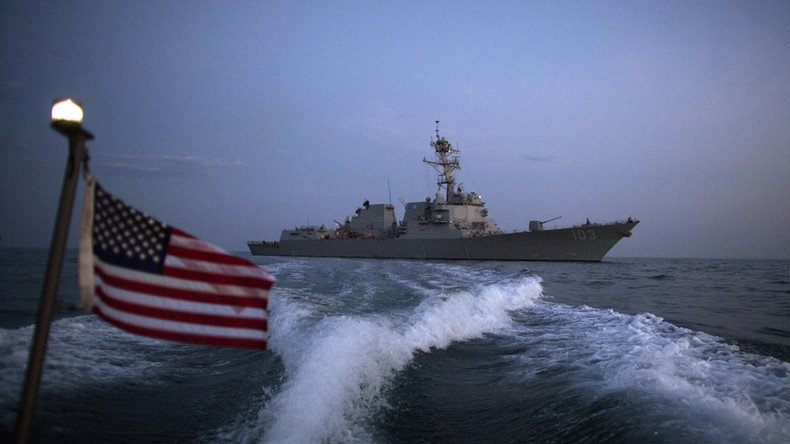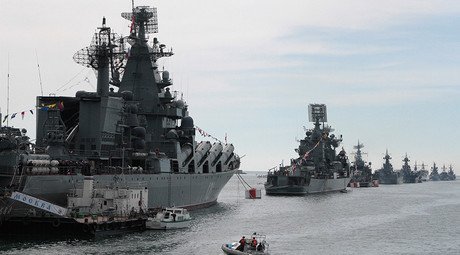US ‘global strike’ concept a direct threat, nuclear arms are good deterrent – Russian naval doctrine

The quest for global domination in the world’s oceans, as well as the global strike concept of the US and its allies, puts international stability at risk and poses a direct military threat to Russia, the country’s new naval doctrine states.
Moscow’s demonstration that it is prepared to use force, including non-strategic nuclear weaponry, is an efficient way to deter this threat, the document says.
One of the main challenges faced by Russia is the “strive of a number of states, mainly the US and its allies, for domination in the World Ocean, including the Arctic region, as well as for establishing overwhelming superiority of their naval forces,” according to “the state policy of the Russian Federation in the field of naval activities for the period up to 2030,” as ratified by a Decree of the President of Russia on Thursday.
The new naval doctrine openly names the states which represent a direct military threat to Russia, in contrast to the now obsolete 2020 document.
It highlights the increasing role of naval forces in the 21st century, as they “can change the course of a military confrontation and the outcome of a war.”
“This is proved by the US concept of ‘global strike,’ which represents a new challenge to international security and directly threatens the military security of the Russian Federation. An important role in the implementation of this concept is assigned to the naval forces,” the document reads.
Naval forces, according to the doctrine, are becoming “one of the most effective tools for strategic (nuclear and conventional) deterrence.”
“During a military conflict escalation, the show of readiness and resolve to use force, including non-strategic nuclear weaponry, is an efficient deterrence factor,” the doctrine reads.
Apart from nuclear weapons, the Russian fleet relies on high-precision weaponry, which enables it to cripple strategic sites and other vital objects of a potential enemy, thereby preventing a full-blown war, the doctrine states.
READ MORE: ‘Russia & China responding jointly to the threat of American imperialism’
Other challenges listed in the document include: the surge in piracy, terrorism, poaching, and other illicit activities in the world’s oceans, the growing number of countries with capable battle fleets, the development of missiles and nuclear weapons, and the desire of certain countries to limit Russia’s access to vital resources and naval routes.
“Negative changes” in the international situation, the mission of certain counties to control fossil resources, piracy, exploiting the volatile situations in Syria, Iraq, Afghanistan, as well as a number of South Asian and African countries, constitute the need for a Russian naval presence in the “strategically crucial and other regions of the World Ocean,” according to the document.














